- Tags:
- Chinese food / Chinese Lunar New Year / Chinese New Year / lion dance / Parade / Yokohama Chinatown
Related Article
-

Imperial March: Star Wars Floats For Japanese Festival On Display!
-
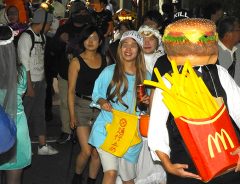
Noge Halloween: A Wholesome, Family-Friendly Alternative To Shibuya’s Riotous Revelry
-
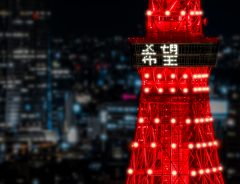
Tokyo Tower lights-up with kanji for ‘hope’ on Chinese New Year 2021
-
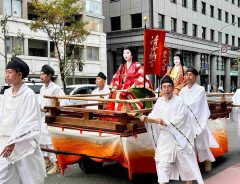
[Kimono Style] Kyoto Jidai Matsuri: A Catwalk of Fashion Through the Ages
-
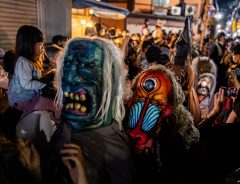
Japan’s Night Parade of One Hundred Demons returns in terrifying force after three year hiatus
-
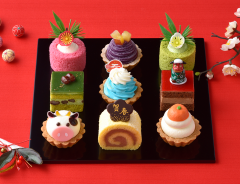
Gorgeous New Year cake set from Japanese confectioners is inspired by Mount Fuji and Chinese Zodiac
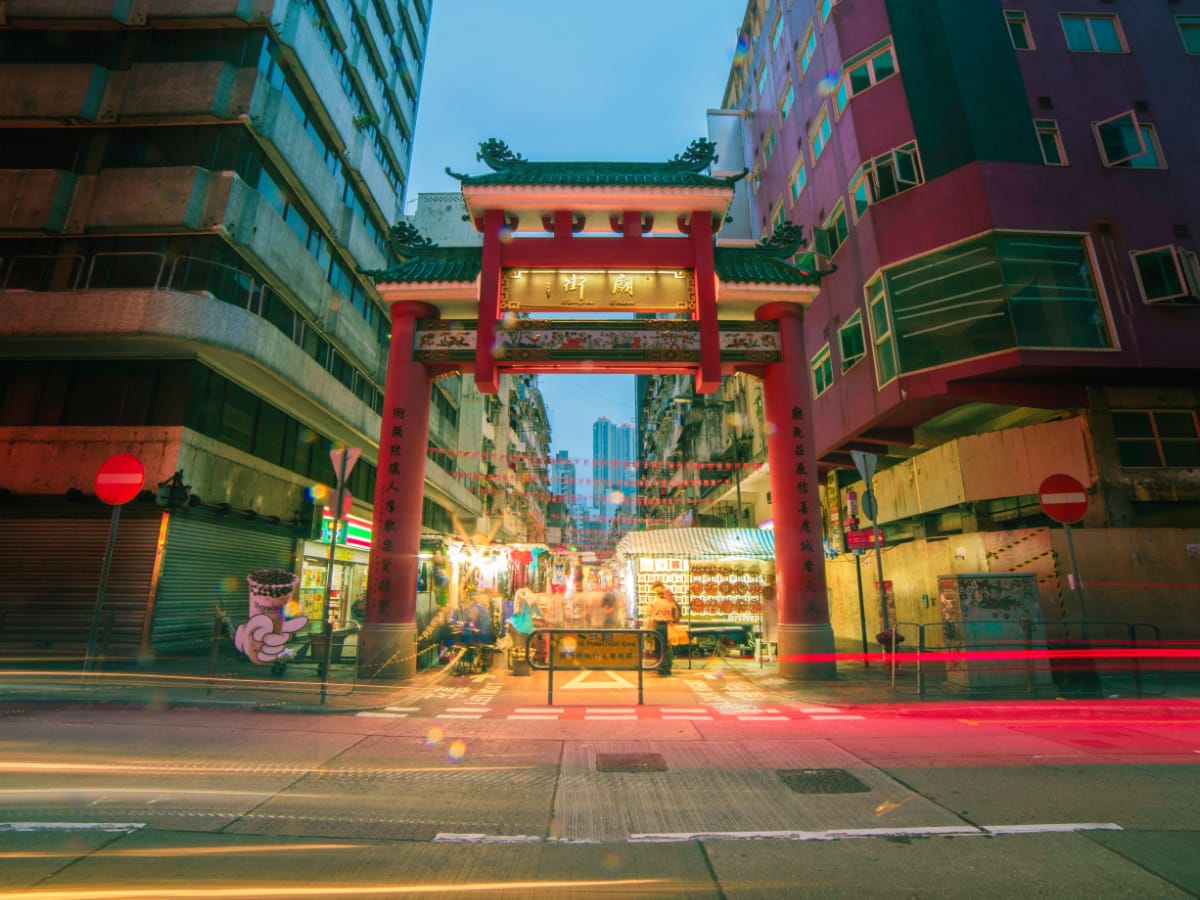


We’ve said our goodbye’s to 2019 and have welcomed in the new decade with fireworks, feasts and parties that have lasted since the 1st of January. The festivities are yet to come to an end, however, as we still have the Chinese New Year to celebrate!
With the start of the year comes the beginning of the Spring season and what better way to greet the season of new life than with a celebration of the Chinese New Year! Known more commonly as the Spring Festival in China, the Chinese New Year follows the Lunar calendar and celebrations take place over 15 days.
Following the Lunar Calendar, the Chinese New Year festival begins on the first new moon between the middle of January and the end of February. Not only celebrating the beginning of spring, the festival also honor family ancestors through old traditions, customs and superstitions that are followed throughout the festival period.
With their long and historical influences and exchanges, it’s no wonder why Japan shares many cultural aspects and traditions with China. Alongside food (need I mention ramen and gyoza?), and ancient architecture, customs such as the Chinese festival of the new year has helped ancient Chinese traditions keep one foot in Japanese society.
Japan’s largest Chinese New Year Festival at Yokohama
Japan has multiple communities where migrants and their descents from China have settled. These areas, which are known as Chūkagai, can be found in Yokohama, Kobe, and Nagasaki. However, the largest community is the one in Yokohama. The area was first settled by Chinese Migrants after Japan opened its ports to trade with the outside world in 1859. The large area is home to around 4,000 people and holds numerous Chinese events and festivals throughout the year.
Yokohama’s Chūkagai, which has been holding the traditional festival annually since 1986 will be hosting festivities which include a Celebration Parade, a lantern festival, traditional Chinese street performance arts and of course, the infamous Dragon Dance. Just 40 minutes train ride from Shibuya, Yokohama’s Chinatown makes for a great day trip from Tokyo, and with the added festivities of the New Year, the area will be buzzing with lively vibes.
24th January - COUNTDOWN
A countdown will take place at the Yokohama Mazu Temple on the 24th of January (the eve of the New Year), with the city in a festive mood as it prepares for the celebrations of the next few days.
Spectacular performances of the Dragon Dance and Lion Dance will take place during the festival. | Vladislav Vasnetsov at Pexels.com
25th January - THE LION DANCE
This ancient dance, which is held at numerous festivals and occasions throughout the year (including at weddings) sees it’s largest performance at the Chinese New Year Festival. The dance is performed to bring good business and rich harvest to the area.
Traditionally performed by two dancers inside of an elaborately decorated lion costume, this dance involves movement which apparently mimic the way a lion moves. The dancers, who practice year round, normally belong to a Kung Fu club as the movements of the dance take their roots from the Wushu style of Kung Fu.
The Yokohama performance of this dance will see five golden lions perform Cai Qing during the spring festival, which translates as “picking the greens”. These “greens” are vegetables which are hung outside of shops in the area. The lions will “eat” the vegetables, which contain a red envelope inside and then spit out the leaves to traditional music that symbolises good luck for the new year. When the lion “eats” a vegetable firecrackers and gongs will ring out in celebration throughout the area. The red envelopes, which are found inside the hanging vegetables contain money for the dancers, and are said to bring good luck to the patron.
The Lion Dance of 2020 is set to take place on the 25th of January, starting at 1:00pm with the performance lasting until 7:00pm. The event is to take place throughout the central area of Yokohama’s Chinatown, with the nearest station being Motomachi-Chūkagai on the Minatomirai Line or the Ishikawa-Cho station on the JR Negishi Line.
26th January - THE CELEBRATION PARADE
This event which will be held on the 26th of January, will also be performed throughout the whole of the Chūkagai area, starting at Yamashitamachi Park, the parade will make its way in a loop around the town beginning at 4:00PM with the performance lasting until midnight.
Visitors will be able to see traditional performances of Chinese style dances and music, another Lion Dance performance and Dragon Dance, as well as witness an ensemble of people dressed up as an ancient Chinese emperor and his subjects.
1st February and 2nd February STREET PERFORMANCE ARTS AND CUSTOMS
As well as the main performances and the parades held during the Chinese New Year Celebration, Yokohama’s Chūkagai will see the weekend of the 1st and 2nd of February jump to life with traditional street performances which include dances, rituals and music.
The performances will take place on three separate stages spread across Chūkagai and include shows performed by various schools and clubs of Chinese culture. More information about the schedule of the performance can be found here.
Visitors will also be able to enjoy traditional Chinese New Year Food’s at the festival. | Photo by Connie Sceaphierde
8th - February LANTERN FESTIVAL
On the final day of the Chinese New Year Festival, Yokohama’s Chūkagai will be lit up by the magnificent lantern festival at Yamashita-Cho Park. Visitors will be able to purchase a lantern at the festival, which they are encouraged to write a wish for the upcoming year upon. During the light up, dances will be performed to help the wishes “reach heaven” when the lanterns are released into the night sky.
The Lantern Festival will commence from 1:00PM and lasts until 7:00PM on the 8th of February 2020.
In addition to the numerous performances set to take place over the festival period, the area will be buzzing with tourists eager to try out traditional Chinese New Year’s food. So whether you feel like experiencing some of the fast pace performances, or perhaps you want to warm up with some heart-warming food, come along to Yokohama’s Chūkagai Chinese New Year Festival!